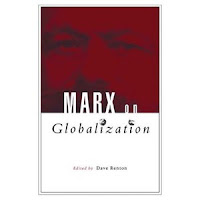An interesting blog and post about how globalisation and global branding is depleting local marketing.
Global Branding Versus Local Marketing
Global Branding Versus Local Marketing
Martin Lindstrom | November 23, 2000 | 1 comments
Day by day, global branding is becoming a bigger challenge. Why? Because it's no longer possible to isolate a brand and its reputation.
You might think you've created an excellent strategy for your brand in one local market, only to realize that the rest of the world has access to that same local communication. This exposure destroys any possibility of separating your local branding strategy from your global branding strategy.
This unavoidable exposure of your local brand-building strategy in the international arena is part of the growing difficulties that attend global brand building. Related to this complication are the internal issues that arise. For example, how can corporations handle the local and global mix in their marketing departments? Is every local marketing department now obsolete? Can local marketing be taken over by a single department of centralized marketing functions?
Such issues are the result of the speed and spread of communications. The Internet has enabled every consumer to access every piece of communication in the world. Good old concepts like running test markets have been dramatically altered because of the increasing proximity among markets. True separation among markets has disappeared.
When Coca-Cola selected Australia as the test market for the first non-Coca-Cola drink it had launched in years, most of the world watched the experiment, and almost as many people participated in the experiment from outside the test market. This might very well have been the strategy's intention. However, if the objective was to test a new product in a local market, the strategy clearly failed.
Global communication is more or less forcing brand builders around the world to adjust their approaches. They're having to forego the strategy that provides local marketing teams with full autonomy. So, how should we handle the brand challenge?
First of all, the local brand is not dead. But some of the activities that are used to promote it are now obsolete. I would separate local brand-building activities from global brand-building activities on the promotional side, as McDonald's has done. Ronald McDonald is the key in-store promotional figure. Very seldom do you see him on television commercials and, when you do, you see him publicizing in-store promotions.
Ronald, very cleverly, has become McDonald's point of differentiation in each market. He celebrates Christmas in Northern Europe and the Chinese New Year in Hong Kong. He promotes McDonald's wine in France and McDonald's Filet-o-Fish in Australia. But he never appears in globally accessible media. McDonald's' global messages come through television commercials. The corporation produces local adaptations of these, too. But you can see McDonald's local twists are substantially stronger in the in-store promotions than on television.
The purpose of global brand management is to conceive of and control a brand's global direction, and this is done by defining and communicating the brand's core values. The execution of this communication lies in devising and consistently applying a specific style, tone, and image.
The role of local brand management is to refine the communication of the brand's core values by adjusting their execution to communicate meaningfully with each local market. If a local event like the Chinese New Year is taking place, it's the local brand-builder's task to ensure the brand leveraging on it. Local brand building depends on an acute awareness of local trends; it's all about leveraging knowledge that the international marketing department has no access to or sympathy with.
The global marketing department is the strategic group. The local team is the tactical group. Both need to work hand in hand.
Sound easy? Give it a go, and you'll realize that it isn't. But hopefully, I've helped explain this fairly complex reality. Now it's your turn to execute it.
Post from http://www.clickz.com/clickz/column/1695787/global-branding-versus-local-marketing







